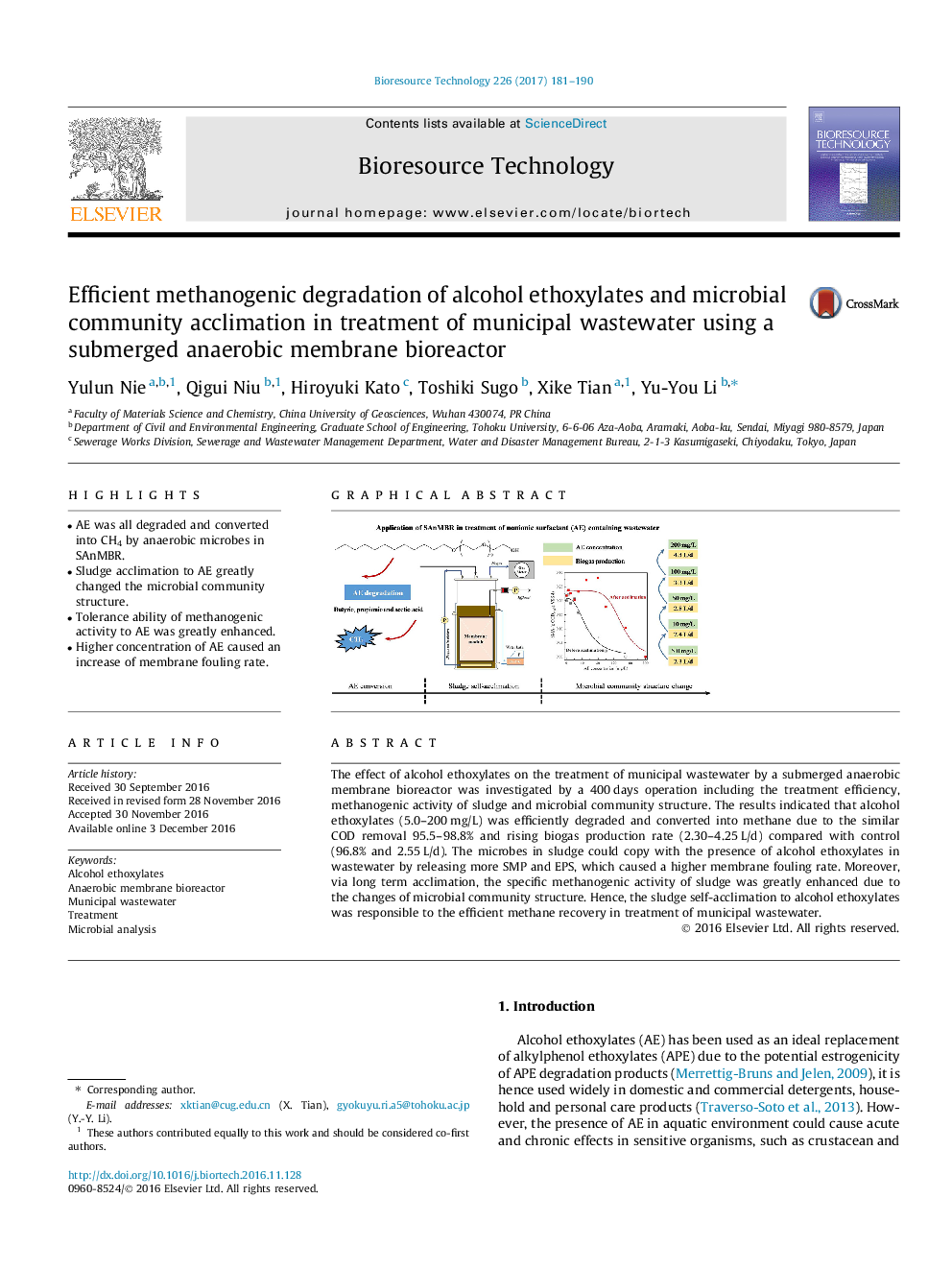| کد مقاله | کد نشریه | سال انتشار | مقاله انگلیسی | نسخه تمام متن |
|---|---|---|---|---|
| 4997639 | 1459917 | 2017 | 10 صفحه PDF | دانلود رایگان |
- AE was all degraded and converted into CH4 by anaerobic microbes in SAnMBR.
- Sludge acclimation to AE greatly changed the microbial community structure.
- Tolerance ability of methanogenic activity to AE was greatly enhanced.
- Higher concentration of AE caused an increase of membrane fouling rate.
The effect of alcohol ethoxylates on the treatment of municipal wastewater by a submerged anaerobic membrane bioreactor was investigated by a 400Â days operation including the treatment efficiency, methanogenic activity of sludge and microbial community structure. The results indicated that alcohol ethoxylates (5.0-200Â mg/L) was efficiently degraded and converted into methane due to the similar COD removal 95.5-98.8% and rising biogas production rate (2.30-4.25Â L/d) compared with control (96.8% and 2.55Â L/d). The microbes in sludge could copy with the presence of alcohol ethoxylates in wastewater by releasing more SMP and EPS, which caused a higher membrane fouling rate. Moreover, via long term acclimation, the specific methanogenic activity of sludge was greatly enhanced due to the changes of microbial community structure. Hence, the sludge self-acclimation to alcohol ethoxylates was responsible to the efficient methane recovery in treatment of municipal wastewater.
200
Journal: Bioresource Technology - Volume 226, February 2017, Pages 181-190
